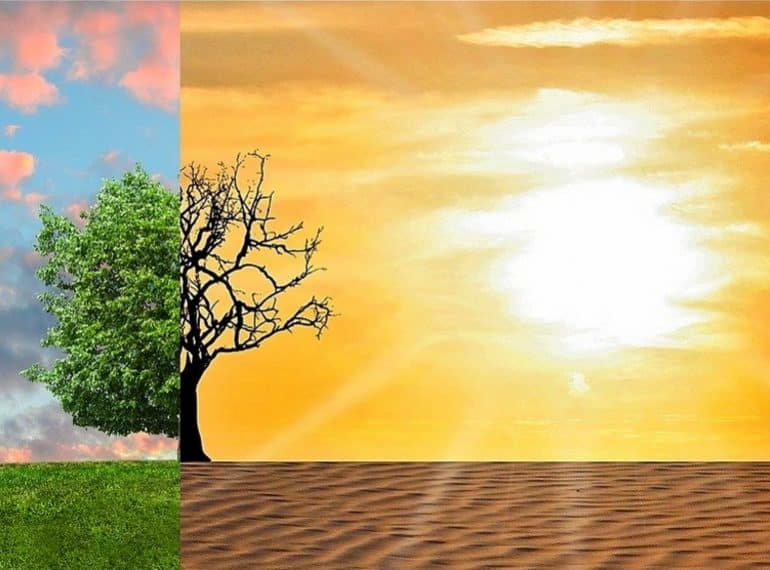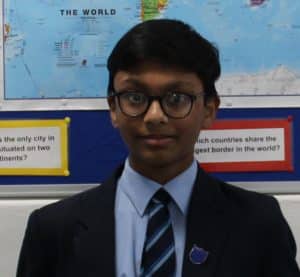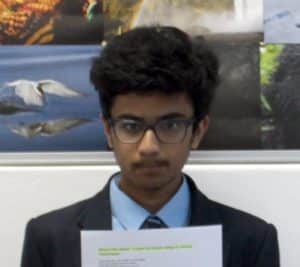
Year 8 geographers have been getting creative as they grapple with the possible future effects of unchecked climate change.
The boys spent the first half of this term studying the topic, with many entering a QE competition challenging them to compose a poem or short story describing the world in the year 2100, when the world has warmed by 2 degrees.
The Geography department teamed up with Head of English Robert Hyland to judge the entries. Keon Robert has now been announced as the winner in the short story category, while Shreyas Chandrasekar was adjudged to have submitted the best poem.
 Emily Parry, Head of Geography, said: ‘I was very impressed with the standard of submissions and the boys’ awareness of the potential impacts of climate change. The creative poems and stories clearly highlight the threat that climate change poses for all of us.”
Emily Parry, Head of Geography, said: ‘I was very impressed with the standard of submissions and the boys’ awareness of the potential impacts of climate change. The creative poems and stories clearly highlight the threat that climate change poses for all of us.”
The competition results were announced as the British Government unveiled its plan for a “green industrial revolution”, bringing forward a ban on petrol and diesel cars and announcing other measures, such as an expansion of offshore wind, hydrogen and nuclear power generation.
In his story, entitled Our Planet is on Fire, Keon imagined a dystopian future in a polluted city of 3 billion souls, its population swelled by immigrants from other countries seeking refuge from the effects of climate change.
There is no respite from the gloom: the story ends with the protagonist attending a meeting at his factory which, as he suspected, is to be closed down, as the authorities try desperately – “too little, too late” – to deal with the crisis.
He reflects ruefully on the missed opportunities to deal with climate change that had brought the world to this point: “We knew it was going to happen, but we never did anything about it. In the end, it strikes us when we least expect it.”
 Most of Shreyas’s poem is equally bleak – “none of us will survive” – and he adds anger into the mix:
Most of Shreyas’s poem is equally bleak – “none of us will survive” – and he adds anger into the mix:
Throw your wrath, your fury, your ire
To those who destroyed our Earth
But his work, entitled Every Little Helped, ends with just a hint of optimism, the voice from the future warning us that all may not yet be lost:
It’s time to act, to change, to make a better choice,
Or there will be no Earth left at all.
Riyan Siyani, who took second place in the poetry category, imagines how his grandchildren’s generation might look back on the present day:
It is the year 2100,
Nothing is the same, all hope has been squandered
We look back to the year of 2020
And remember how food was aplenty.
The runner-up in the short story category was Adam Liang, who draws out the effects of climate change on nature and on different groups in society, including the young – “babies are crying constantly…children complaining that it’s too hot” – and the old – “the first to go…they wasted and wilted away, just like dead flowers in the wind”.
